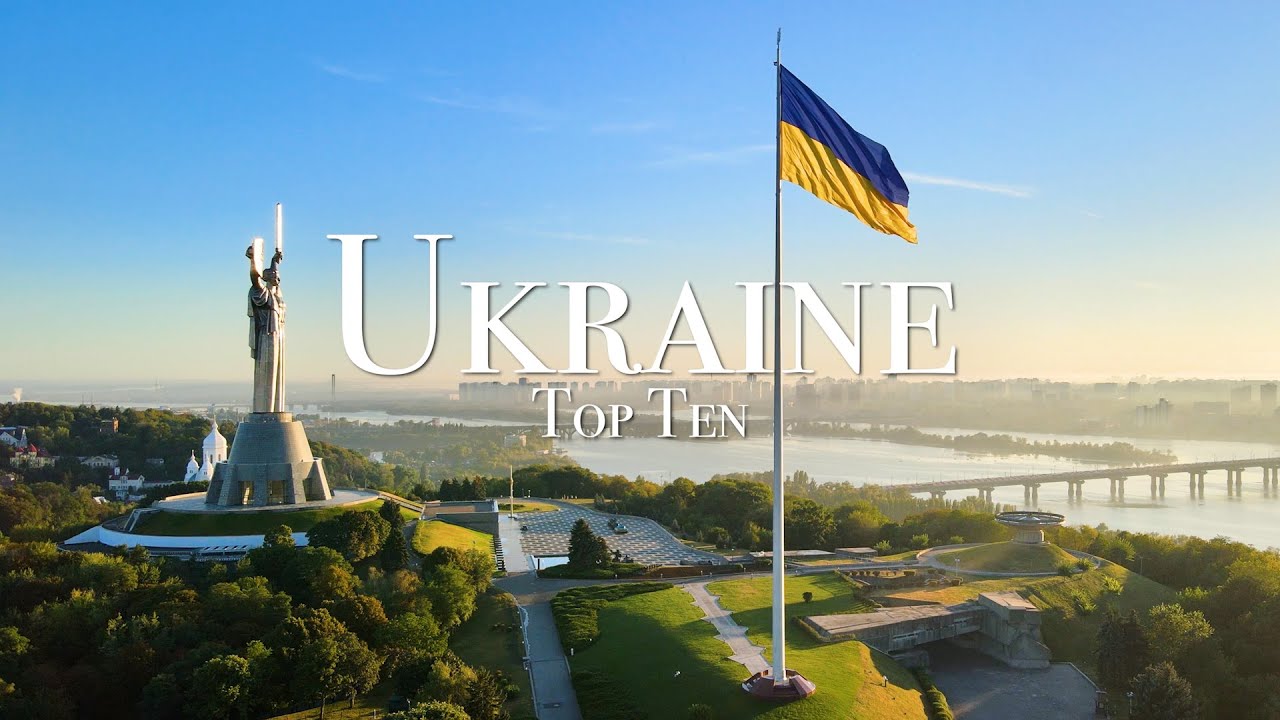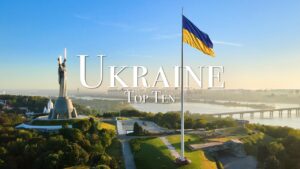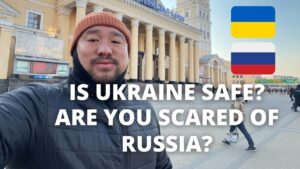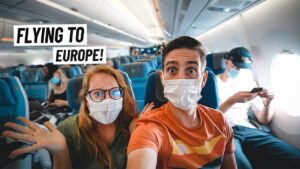If you’re considering a trip to Ukraine, you should be aware of the new travel restrictions that have been put in place. The government has announced that there are several issues that need to be taken into account, including the risk of landmines and bomb debris. This is in addition to the requirement that travelers must get a COVID-19 PCR test 48 hours before leaving.
Children and young people not required to provide proof of vaccination or a negative test to enter the country
If you haven’t yet made it to Ukraine, snagging an invitation or visa may be your only route to getting in the country. Fortunately, there are a few perks of being a foreigner in Ukraine. Among them are the freedom to move about, the ability to speak Ukrainian, and access to public services like the internet. However, these benefits come at a price. For example, you’ll have to cough up some cash to get by.
In addition to money, you’ll need to have some kind of health insurance. Not to mention a valid passport or ID. To prove your bona fides, you might be asked to present proof of sufficient funds in the form of a bank statement or some other kind of document. On top of that, you may have to undergo a fingerprinting process at the border crossing point of your choice.
There’s also a plethora of etiquette guidelines that apply to all visitors. You’ll want to wear a hat and not a t-shirt, for instance. In addition to this, you’ll be required to have a visa or passport, and an approved immigration card. Also, don’t be surprised if the immigration authorities request a copy of your itinerary or other relevant documents. Lastly, be sure to keep your ID close at hand. Leaving the country without your passport or visa is a surefire way to get into hot water.
COVID-19 PCR test administered 48 hours before travel
It is important to know how to prove that you are not infected with COVID-19. The COVID-19 pandemic has affected a number of countries, including Ukraine. However, travellers can reduce the risk of contracting the virus by following certain guidelines.
If you are planning to travel to a country with high incidence rates of COVID-19, it is important to follow self-isolation guidelines. You must stay at home for at least 14 days after returning from that region.
As of mid-November, fewer new cases of COVID-19 have been reported. However, there is a risk of a pandemic spreading in certain regions. Travellers should keep in mind that the disease is a long-term threat.
There are many ways to prove that you are not infected. One of the simplest methods is to show proof of a negative PCR test. A PCR test is a method that amplifies viral genetic material. This increases the chances of detecting genetic material in the human body.
In addition to a negative PCR test, proof of vaccination is also necessary. Generally, people who are not infected with COVID-19 will not be subject to a quarantine.
Foreign nationals who are permanent residents of Ukraine are exempt from PCR/RAT testing requirements. Those who are not exempt will need to provide a certificate proving that they have received a COVID-19 vaccine and proof of health insurance coverage.
Landmines and bomb debris are a risk
If you plan to travel to Ukraine, do not ignore the threat of landmines and bomb debris. These deadly remnants of war have been causing thousands of civilian casualties for years. In fact, the number of deaths due to mines in Ukraine has increased. This only shows how serious the situation is.
The UN estimates that there are around 30,000 hectares of mined territory in Ukraine. Mines are placed beneath the ground surface, and can cause death and injury to both combatants and non-combatants.
Many factions do not keep accurate records of their minefields. This makes removal efforts painfully slow. As a result, mines can remain dangerous for years.
To help defuse the landmine crisis, Ukraine has launched an unprecedented operation. Ukrainian military commanders are utilizing periodic lulls to deploy sappers to clear mines.
Despite the risks, there is still a strong appetite for traveling to the country. But the safety of travelers depends on their willingness to follow directions.
There are several organizations that provide information on safe travel to Ukraine. One of them is the Humanity & Inclusion (HALO) organization. Its website receives over 1.5 million hits a month, making it one of the most popular in the world.
HALO is also the co-founder of the International Network on Explosive Weapons. They have also teamed up with the Cluster Munition Coalition to raise awareness about the explosive remnants of war.
Russia’s travel black list includes Argentina, Ukraine, Brazil, South Africa, India, Mexico and Turkey
A recent travel blacklist from Russia to Europe included several countries. Some of these include Ukraine, Argentina, Brazil, India, Mexico and Turkey. But it also includes outspoken critics of Moscow.
The list was produced by Russia’s Foreign Ministry in response to several EU states’ sanctions against the country. It includes 89 military and political leaders and officials.
As a result, this has angered Europeans. They argue that the West is taking a sledgehammer approach to a matter that might be more appropriately handled by diplomacy. And while the list is impressive, the consequences of imposing economic sanctions on Moscow are likely to be far worse.
For one thing, the cost of sanctions against Russia would severely limit its economy. Second, the list may hurt its allies in Latin America.
One of Russia’s main objectives is to bolster its ties with Latin America. Putin visited Nicaragua last week for unannounced talks, and is scheduled to visit Argentina later this month. He also signed a nuclear energy cooperation deal with Argentina.
Meanwhile, the United States is stepping up its own slew of penalties against Moscow. Last month, the State Department issued a travel advisory for Ukraine, citing Russian “silence” on the eastern part of the country.
Several Latin nations have criticized Russia’s actions in Ukraine. Some have taken a more measured approach, while others have rushed to support the Kremlin in the name of economic pragmatism.
COVID-19 travel tests must be booked using the CTM Booking Portal
If you’re planning a trip to England or mainland China, you may need to present a COVID-19 test before you can board a flight. For travelers from the US, this test is not required. However, it is still necessary to have a negative PCR test that has been completed at least 72 hours before traveling.
Travelers must provide proof that they’ve had a PCR test and a booster vaccine within the last three years. They must also fill out a passenger locator form, which is used in the event of a COVID outbreak.
Several countries have added or strengthened booster vaccine requirements. Austria, Netherlands, Maui and Spain have all added requirements.
Delta Air Lines requires pre-departure COVID-19 testing for all passengers. You can also opt for a rapid test at the airport. The airline accepts vaccination records, digital vaccine certificates and health insurance.
Currently, all international arrivals to England must present a negative COVID-19 test. In addition to that, you’ll need to show proof of a viral test or a COVID-19 notification.
Travelers from the UK and Northern Ireland can use a private provider. However, companies and individuals are responsible for the consequences of their advice.
If you have a positive test, you must provide the healthcare provider that cleared you for travel with contact information. If you do not provide this, you will be required to stay quarantined.
COVID-19 Passenger Locator form will be available online
Passenger Locator Form, also known as the PCR or rapid swab test, is an official document that contains information about the travelers, including their name, address, passport number, nationality, and other details. The main purpose of the document is to monitor the movements of travellers and help prevent the spread of infectious diseases. In addition, it can be used by public health authorities in the destination countries to locate and identify passengers in case of a health problem.
A Passenger Locator Form is required by all visitors to Belgium. It is a legal requirement, and failing to fill it out may result in a refusal of entry into the country.
As of December 2017, the European Union has implemented a new system for passenger locator forms. This system, known as the Digital Passenger Locator Form (dPLF), is a web-based application that helps to collect data faster and easier.
For international travelers arriving in Ireland, there are no longer post-arrival testing requirements, or a requirement to prove the completion of the COVID-19 vaccine. However, arriving passengers must complete the Passenger Locator Form before arriving in Ireland.
Passenger Locator Forms are not mandatory for foreign diplomats. However, non-US citizens and immigrants who are visiting the US must be fully vaccinated with the COVID-19 vaccine.
There are some exceptions, and travelers are encouraged to research and familiarize themselves with the latest guidelines. The CDC website can provide information on the vaccination and testing process.





